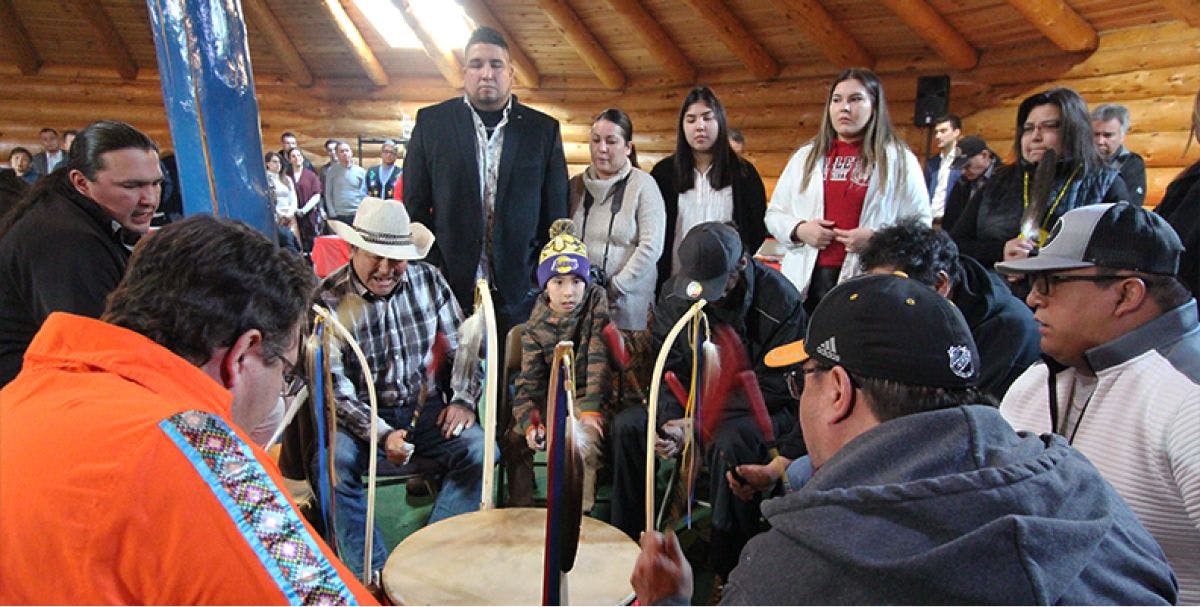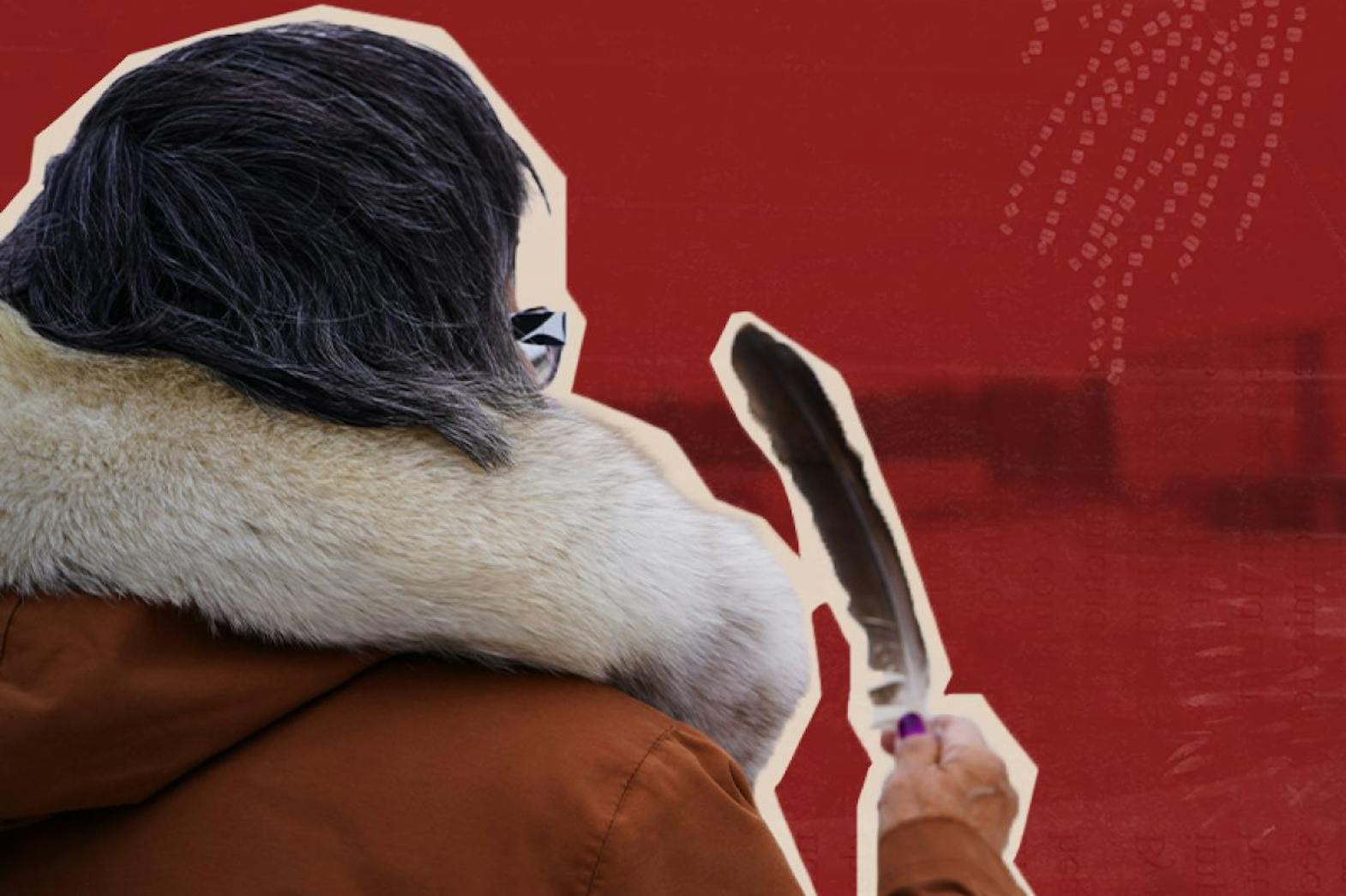July 1st marks the anniversary of Canadian Confederation. Previously known as Dominion Day, July 1, 1987, was the day the British North America Act, 1867 was passed, bringing United Canadas, Nova Scotia, and New Brunswick into a single dominion within the British Empire. Dominion Day became Canada Day with the passing of the Canadian Constitution on this day in 1982. The day is marked with celebrations across the country, starkly contracted with harsh reminders of the dark legacy of colonization. On the one hand there are fireworks, and on the other hand strong reminders to step it up on the journey to reconciliation and to decolonize our systems.
But what does it mean to decolonize?
To us the conversation about decolonization requires careful thinking about what, why, and how decolonization can happen. To do this, we must first acknowledge who we are and where we come from. We write this article from our respective vantage points.
I, Somia Sadiq, write about decolonization against the backdrop of my people – the Punjabis and the Kashmiris who were colonized by the British first covertly through the East India Company and then overtly from 1858; a bit of a hot mess that we gained independence from in 1947. I also write about decolonization as a guest in Turtle Island who has the deep honour to learn from and walk with in allyship with Indigenous peoples.
I, Desiree Theriault, write about decolonization as Red River Métis woman with a deep connection to my ancestors of the Red River Settlement. The path I tread is interwoven with the struggles and triumphs of those who came before me, and the profound duty to those who come after me. Decolonization, to me, is not just an abstract concept or academic discourse, it is a personal and heartfelt commitment to honouring my ancestors’ wisdom, resilience, and other ways of knowing. I write to carry their stories, their struggles, and their enduring spirit of resistance for future generations to thrive.
I, Conor Smith, write about decolonization as a settler in Turtle Island, to help to remind us settlers of the shape and form to our responsibility. By “our” I refer to those of us who are privileged by the dispossession of lands and resources, and the policies that work to disable resistance – including the theft of culture, language, and human life. In error, we often mistake well-intentioned actions to be decolonization when we position them as remedies to “our” problems – our shameful past and beleaguered conscience, our changing climate and polluted lands and waters, our ethics of justice and righteousness. Instead, we must stop making the marginalized the objects of “our” salvation. It is our responsibility to get out of the way. It is our responsibility to make space. It is our responsibility to lift up. It is our responsibility to bear witness.
Together we write about decolonization to reflect on what decolonization means in our actions, in our words, in how we work, in who we call to seek guidance on anything that troubles us as leaders at Narratives Inc. We reflect on it against the backdrop of those bearing witness to the legacy of the Indian Residential School System and other institutions that pushed the colonization agenda.

This photo is from a MOU signing ceremony by the Niiwin Wendaanimok communities in Treaty 3 to mark the beginning of discussions with the Ministry of Transportation Ontario about Twinning of the TransCanada Highway.
Let’s start with what decolonization means to us.
To us, decolonization means unpacking colonial systems, understanding how they came to be and why, reflecting on what within that system might be worth keeping, what might be worth tossing away, and what might be worth rebuilding entirely. And once that happens, how those new ways of being can be nurtured and sustained. To us, decolonization means rebuilding in a way that is trauma-informed, in a way that does no more harm. All this cannot happen in isolation. No. It must happen in a good way. We must recognize our privileges, our biases, our place in society, and our limitations given who we are, how we were raised, and how we may even understand or not understand the systems we live within.
What we offer here today are questions and reflections that we ask ourselves as we learn and walk on this journey.
First off, what are the principles one intends to follow as we try to understand what decolonization means? One of the Anishinaabe Elders (George Kakeway – a hockey hall of famer btw!) who we deeply honour always reminds us that if we want to get anything right, everything we do must follow four key principles:
Weweni(take your time),
Bebeka(do it right),
Biizindun(Listen), and
Kegotachken(don’t be afraid).
Secondly, take the time to understand the impact of colonization – let’s take a step back here and think of what colonization has done to different groups in society. To those who were colonized, to those who did the colonizing, to those who were collateral. Let’s really take our time with this exercise. First, uncomfortable as this may be, place yourself in the shoes of the colonizer. What would need to be done to establish authority, control over the economy, the resources, and do so for eternity? What existing systems would you demonize? What existing systems would you either not see, or not want to see if you wanted your own systems? Who would you demonize? Whose power would you take away to establish your own? What existing trade, economic systems, systems of learning would you dismiss, discount? How would you frame them in society in a manner that undermines them? If people didn’t speak your language, what would you do to make sure your language becomes the dominant language? Whose help would you solicit to make it work? Who would your allies be as you colonize? What systems would you implement to make sure your authority could never be questioned?
Once you’ve reflected on those uncomfortable questions, then think of yourself as the people on the shore when the ships first arrived on Indigenous lands. How would have all this impacted you. Over the weeks, the months, the years, the decades, the centuries. To answer these questions, perhaps look around in Canadian society. Indigenous peoples have been talking about the impacts, the harms, loss of language, losing their children to the Indian Residential School System, to Day Schools, to institutions, the intergenerational impacts. Listen to what Indigenous leaders have been saying what decolonization means. Biizindun. Listen. Ask. Kegotachken (don’t be afraid). They have been talking. Really listen. Does what they have been saying perhaps resonate more now that we have all taken the time to listen?
Once we have taken some time to reflect, it’s time to do something about it. Some questions to reflect on here might be:
- 1
What systems, laws, policies continue to perpetuate harm?
- 2
What behaviours in our society enable violence towards Indigenous peoples?
- 3
What prevents us from not saying anything, or not becoming a part of the solution?
- 4
- 5
What parts of wholes of systems, laws, policies need undoing or restructuring?
- 6
What would the impacts of restructuring be?
- 7
What would the reclaimed, revived, and rebuilt systems look like?
- 8
How can the systems be nurtured, sustained, and maintained in a good way?
Yes, decolonization is challenging, its more questions than answers, but as hard as reflecting on those questions is, it’s harder to be on the receiving end of the colonization agenda. As we bear witness, we hear it reflected in the stories of every Elder we speak to, every youth, every mother, sister, daughter, every person who has suffered the impacts of colonization. With it all, we also hear pride, hope, the strength in reclaiming what was, is, and always will be their inherent right. Their inherent right to be pre-colonial mucking. To lands, to language, to systems, to laws, to culture, to spirituality, to ways of knowing, sharing, ways of being.
Finally, to us, decolonization is about learning to walk together. It is about making sure the space and voice belongs to Indigenous peoples. It’s about making sure we’re always just holding the space when invited to, to do as asked, to advise when our advice is solicited, and remembering to do it fearlessly, honestly, respectfully. Kegotachken (don’t be afraid). It’s about knowing the difference between good allyship and a savior complex. It’s about knowing ourselves, our biases, our place on Turtle Island.
Like George always says,
We need to walk together. If we walk ahead, we will wait for you. If you walk ahead, you wait for us.




